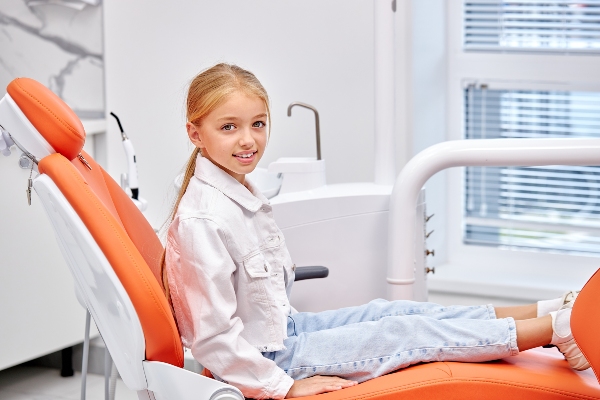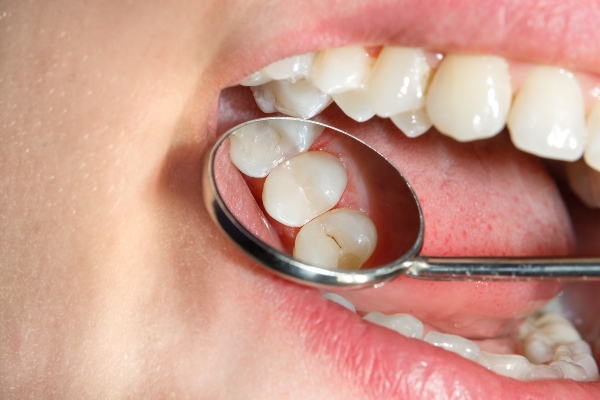 Primary teeth are important in
pediatric dentistry. They are the foundation for the development of the permanent teeth. Losing baby teeth too early can cause more dental problems for the child as they grow up.
Primary teeth are important in
pediatric dentistry. They are the foundation for the development of the permanent teeth. Losing baby teeth too early can cause more dental problems for the child as they grow up.
How to care for your infant’s first teeth
If parents want to know how they should care for their child’s teeth through pediatric dentistry, here are the details.
Bringing the child in for pediatric dentistry checkups
Dentists recommend bringing in the baby for their first dental checkup once the first tooth erupts. This early dental visit is basically a well-baby check for this first tooth. The dentist will check for any problems, such as cavities. The parent will then receive instructions on how to clean the baby’s new teeth. Talking about thumb-sucking can also help the parent determine when this habit should stop.
Practicing proper cleaning techniques
Proper dental care must start in the first days after birth. Parents should regularly wipe the baby’s gums with a clean washcloth or sterile gauze. This helps the baby get used to cleaning inside the mouth. Decay can start as soon as the first tooth appears. A fine-bristled toothbrush can clean the first new tooth and the ones that follow. Water is the ideal cleaning agent at this age.
From three to six years of age, a pea-sized amount of fluoride toothpaste is enough to clean the baby’s teeth. This should happen twice a day. Telling the child not to swallow the toothpaste is important. Supervising the child’s teeth cleaning can ensure that the child does it properly. Flossing can begin once the gaps between the teeth close.
Getting preventive pediatric dentistry treatments
Fluoride is a naturally occurring element that can strengthen and protect teeth from decay. The dentist can recommend a fluoride treatment during the early dental visits. This is a good way to ensure the health of the child’s new teeth. Another way to care for the infant’s teeth is to provide dental sealants. This is typically a treatment for the child’s first molars. The dentist can reapply the plastic resin coating when the permanent molars appear.
Being mindful of the child’s diet and eating habits
Dentists often advise parents to refrain from using breastfeeding or a bottle of formula as a pacifier. The child should only get milk during meal times. Removing the breast or bottle of milk from the child’s mouth is ideal if they fall asleep. On-demand and night feedings must stop the moment that the first tooth appears. Weaning from the bottle or breast must begin when the baby is a year old. Giving the baby water anytime during the day is better than juice.
When under a year old, the baby should only drink formula or breastmilk. The baby should not drink water, juices, or other drinks at this age. Adding more sugar to the baby’s drinks is not advisable. The parent should always offer water between meals when the baby is more than a year old. Rinsing the mouth with water is vital after eating something sweet. Neutralizing bacterial acids this way can help prevent complex pediatric dentistry treatments.
Sticky candies, gummy snacks, and starchy desserts tend to stay on the teeth for hours. Chips also stick to teeth for long periods. Raw fruits and vegetables, yogurt, and cheese as snacks can support the good bacteria in the mouth and help fight the bad bacteria that cause problems.
Pediatric dentistry recommendations can help you care for your baby’s teeth
Ask your dentist about how to care for your baby’s teeth. Working with the dentist can also help your child learn good pediatric dentistry habits as they grow up.
Request an appointment or call Hudson Valley Pediatric Dentistry at 845-363-4177 for an appointment in our Middletown office.
Recent Posts
Cavity treatment for kids is essential for a child’s oral health. Dental decay can cause discomfort, causing the child to lose focus at school. It can even result in low self-esteem and malnutrition. Treating cavities can improve your child’s general health. Here are effective techniques for cavity treatment for kids.There are cases when fillings cannot…
Parents play a crucial role in their children's tooth care by ensuring their children get started on the right path to optimal dental health. This involves overseeing children's tooth care at home while also helping them develop healthy dental habits and ensuring they see a pediatric dentist regularly.Parents will need to keep their child's mouth…
Just like adults, children need preventive dental care — that is where pediatric dentistry comes in. Many parents believe that their child's teeth are healthy simply because their child is young. The truth is that oral health issues are as prevalent in kids as much as adults. Since they love sugary treats, the risk of…


